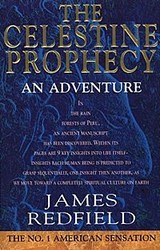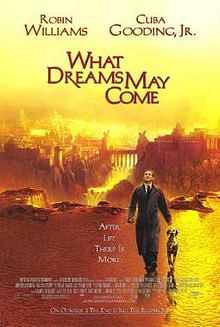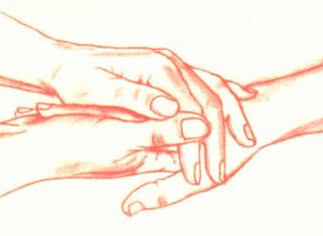Everyone gets there. Some of us just take the long way home.
Every day, our life gives us new lessons where we (should) learn something new. Ideally, should we are to learn and acquire something good, something important, something meaningful. We (should) learn from reading a news, after meeting (old or new) friends, from sharing ideas, from listening to music, from just watching others. What I want to say is, we can learn from anything - even by staring at the clouds or watching the birds or in silencing the mind. Lessons are in our body, at home, in the nature .. in every second of our lives.
Life hands us valuable lessons - the good thing is, we can decide what we want to learn. We can take the best and throw away the rest. The bad thing is, should we fail to empower that life can bring with it the opportunity for us to learn about ourselves and completely ignoring its meaningful purposes, then we ought to think hard.
Learning helps us more easily and readily to adapt with situations. Towards a comfortable situation to improve the overall quality of life. Lessons bring in the required growth and improvement but it requires our conscious commitment to learn.
Life is always changing and moving. Look at it as if we are sitting on the beach - we change and move our body to find the right comfort against the direction of the sun or the ghastly wind. Our body will keep adjusting, and shifting, accordingly till it finds its 'safe haven' while it is still enjoying the beauty sitting on that beach.
The fact the body goes through that process in finding the safe haven is, in itself, a lesson. That very simple illustration let many of us to miss that life, at every single moment, is about learning. About bringing meaningful purposes to our daily lives. About appreciating the divine beauty towards building our wisdom. About knowing to talk the talk and realizing walk the walk.
To learn means we are to accept the curves of life whether good or bad; that every thing is to happen so that we can learn. Such is the way of the Universe where every happenings must happen right before us to open up our awareness and consciousness towards ourselves. To who am I and the purpose of our existence. All the events that take place, with all its choices and adventures and uncertainties, have prior causes.
A good critical learner of life is when one can simply accept all happenings without attachment to the consequences. Importantly, without having a trailing negative feeling of fear, judgment and ego. Lessons are about internalizing our true Self, about reshaping our character, about dealing with our ego, about getting in touch with our emotions and redefining the way we see things.
Learning does not have to come in a form of words nor it has to be from somebody to teach us. As the saying goes 'Education is not the filling of a bucket but the lighting of a fire'. Simply, when we have the fire, it lits our awareness to keep learning. When there is will, there is a way. After all, life is the greatest teacher of all. It teaches us things that no one else could.
Perhaps, as we are socially conditioned, we think that lessons are only learned when we think of school as the only place where learning takes place. The way our parents would ask us "What did you learn in school today?" every time we are back from school, programs our psychology. Thus, it leads us unconsciously to dismiss that life itself is far more an enriching school where we learn on life lessons every day.
There are some of life's lessons that we would rather not have and there are some of what we learn that we wish we do not have to - this is exactly what makes life such an excellent teacher. Life has its own natural and logical consequences. Should life is predictable and that we are always in control, how would we learn?
We want to learn so that our intelligence and wisdom grow. So that we can be a better person. However, there is a difference between intelligence and wisdom. These two are not the same thing. According to DifferenceBetween.com, intelligence is the capacity to acquire and apply knowledge. Whereas, wisdom is the accumulated knowledge that gives the ability to discern or judge what is true, right, or lasting; gives the common sense; gives insight.
It says "Intelligence is normally construed to be the amount of information gathered in the human brain. Wisdom on the other hand is the intelligence that we gain in the process of learning from the mistakes that we commit".
There are nine different kinds of intelligence according to Howard Gardner. There is emotional or existential intelligence, verbal linguistic intelligence, intra-personal intelligence and so on.
Like intelligence, there are different kinds of wisdom too. There is the wisdom of a person making the right decisions. There is the wisdom of a person knowing his limitations. There is the wisdom to know that, however successful one can be, he/she still makes mistakes. There is the wisdom of a person who stays peaceful in a chaotic situation.
I have often hoped, as I grow to learn, that intelligence and wisdom should partner each other. That, both should co-exist together. It is meaningless should one is academically smart or a good power thinker yet possess little wisdom.
Perhaps, we can learn from a Buddhist folklore about two travelling monks. When they reach a river, they meet a young pretty woman where she asks if any of them could carry her across. One of the monks hesitates but the other quickly picks her up onto his shoulders and transports her across and puts her down on the other bank. She thanks him and departs.
Few minutes later, as the monks continue on their way, one speaks out "Why did you do that when our spiritual teaching taught us to avoid any contact with women?". The second monk replies "Why are you still carrying her when I have already set her down on the other side ?".
Intelligence Vs Wisdom
The insight of this folklore raises an interesting question. Question is, where shall wisdom be found?
Our intelligent mind is often wired to select and interpret evidence based on our own perception, judgment, experience and bias. Our thinking distorts reality to increase our self esteem through self justification. Unfortunately, many of us perceive ourselves readily as the origins of good effects and reluctantly as the origins of ill effects. Often, we present a one-sided argument to ourselves to increase our hope and reduce our anxiety.
There is a big difference between intellectual reasoning and emotional reasoning. The earlier we grasp the difference, the easier we can process rational perspective and internalize intellectual standards. Only after we internalize its differences that we will be able to understand life. We will be able to make a complete and full surrender of life for a bigger plan.
In the folklore above, one of the monks allows his intellectual reasoning to process and to determine the meaning of events. It results in the collapse of his emotional reasoning where conscience has become an issue. His intellectual mind tells him that the other monk has committed a sin.
Intellectual reasoning has a tendency to analyze reasons. In intellectual reasoning, there can always be issues on clarity, precision, accuracy, relevance, depth, breadth, logicalness and significance. There is always the final question of 'so what is right?'.
Compassion lies with emotional reasoning. Perhaps, this is where wisdom is too. This is where divine beauty grows and where God resides in our soul. This is the place where we should allow lessons to empower, where we should allow our intellectual reasoning to take ownership of our words.
The human heart is basically good, generous and compassionate but without wisdom, compassion will not work. Wisdom is the openness that lets us see what is essential and most effective. Journeying with emotional reasoning, however, involves acting accordingly with our characters and moral norms. Unfortunately, because of our human tendency to be involved with our own selfishness, our own likes and dislikes, we develop walls for emotional reasoning and intellectual reasoning to integrate.
Life lessons are important to create for all the good things that humans are seeking - peace, harmony, wisdom and compassion. Our failure lies in our ignorance. If we reflect on it, we realize that our perception of the external world has much to do with our internal attitude. Our mind makes excuses based on external circumstances that reflect what we feel inside.
When we see a person and he does something we like, then he is a good person. But if this same person does something we don’t like, then he is a bad person. So transforming the external environment must begin with transforming the inner self.
Much of this is easy to say. Practice definitely begins with ourselves. When we look into a mirror, we usually know what we want to see, and so we see only what we want. To see what is really in the mirror, good or bad, and to work with what we see, is very important and very necessary. It takes some courage.








 I offer Reiki Distant Healing
I offer Reiki Distant Healing